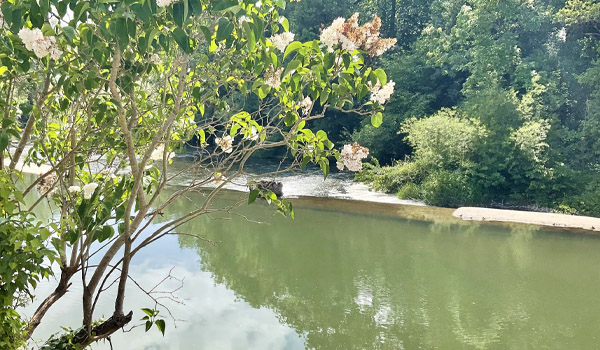June 24, 2023 / By rachel
Decline in River Wye’s Condition Influences Planning and Construction Industry
After the ban on new developments in the River Lugg catchment area because of the high phosphate levels in the water, recent reports regarding the condition of the River Wye have raised concerns within the planning department and the construction industry. The official status of the river has been downgraded due to its deteriorating condition, leading to potential implications for future planning decisions.
According to a report by the Wildlife Trusts, the River Wye’s condition has worsened, impacting its ecological health and biodiversity. This downgrade may trigger stricter regulations and environmental considerations when approving planning applications near the river.
One significant impact of this downgrade is the implementation of a ban on phosphate discharges into the river. Phosphates, originating from human activities such as farming and wastewater treatment, contribute to water pollution and harm aquatic life. The ban aims to minimise further degradation of the river’s water quality.
To address the issue, measures such as ‘nutrient neutrality’ are being introduced. Nutrient neutrality involves offsetting the negative environmental impact of new developments by implementing measures that enhance water quality elsewhere. This approach ensures that new construction projects do not exacerbate the existing pollution levels in sensitive areas like the River Wye.
The construction industry will need to adapt to these new regulations and incorporate strategies to achieve nutrient neutrality in their projects. This may involve employing sustainable building practices, such as incorporating green infrastructure, implementing effective stormwater management systems, and utilizing low-impact development techniques.
The planning department will likely scrutinize proposed developments near the River Wye more carefully, considering the ecological impact and water quality implications. Environmental assessments and mitigation plans may become more rigorous to protect the river’s delicate ecosystem.
It is essential for developers, architects, and planning authorities to collaborate closely to ensure sustainable practices and compliance with the evolving regulations. By adopting environmentally friendly approaches, the construction industry can contribute to the preservation and restoration of the River Wye’s condition.
As the situation unfolds, stakeholders will need to remain informed about any further developments and adapt their strategies accordingly. Protecting and restoring the health of the River Wye will not only safeguard its unique ecosystem but also contribute to the long-term sustainability of the surrounding communities.
Sources:
“Official Status of River Wye Downgraded Due to Worsened Condition” – The Wildlife Trusts
“First Phosphate Credits Awarded in County” – Hereford Voice
“Nutrient Neutrality” – Homebuilding & Renovating
